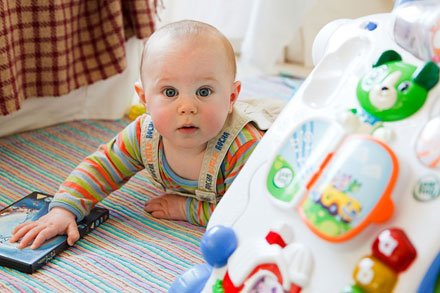Bottle feeding has both advantages and disadvantages. It is important to consider the benefits of convenience and flexibility, but also the potential risks to a baby’s health and bonding experience with their caregiver.
Bottle feeding offers a convenient and flexible option for parents, allowing for easier feeding when on-the-go or when the mother is unable to breastfeed. This can be particularly helpful for working mothers or those with medical conditions that prevent breastfeeding.
Additionally, bottle feeding allows for easier monitoring of the baby’s intake and can provide a sense of control for parents. However, bottle feeding also has its drawbacks. Babies who are bottle fed may miss out on the health benefits of breast milk, including essential nutrients, antibodies, and natural immune system support. Bottle feeding may also increase the risk of developing allergies and certain health conditions. Moreover, the bonding experience between a baby and their caregiver can be different with bottle feeding, as the physical closeness and skin-to-skin contact associated with breastfeeding is reduced. While bottle feeding can offer convenience and flexibility, it is important to carefully consider the potential disadvantages, such as the impact on a baby’s health and bonding experience, before making a decision.


Credit: medicalchannelasia.com
Benefits Of Bottle Feeding
Bottle feeding offers numerous benefits, including flexibility and convenience for parents. It allows for the sharing of feeding responsibilities, giving both parents equal opportunities to bond with the baby. With bottle feeding, caretakers can easily step in and provide nourishment when needed, reducing the strain on a single primary caregiver.
This flexibility allows parents to juggle work, personal commitments, and other responsibilities more easily. Additionally, bottle feeding provides mothers the opportunity to rest and recover, especially in cases where breastfeeding is not possible or challenging. It also enables parents to monitor the baby’s intake more accurately, making it easier to identify any potential issues or concerns.
While it may not offer the same emotional and health benefits as breastfeeding, bottle feeding can provide a practical solution for modern and busy lifestyles.
Disadvantages Of Bottle Feeding
Bottle feeding, while convenient, does come with its share of disadvantages. One major drawback is the lack of bonding experience between parent and baby. Unlike breastfeeding, bottle feeding does not provide the same skin-to-skin contact and emotional connection. Additionally, bottle-fed babies are at an increased risk of overfeeding and developing obesity.
Unlike breastfeeding, where the baby has to work for their milk, bottle-fed babies can easily consume more than they need. This can lead to problems such as excessive weight gain and an unhealthy relationship with food later in life. It’s important for parents to weigh these disadvantages alongside the advantages before deciding on the best feeding method for their baby.
Health Considerations For Bottle Feeding
Bottle feeding offers both advantages and disadvantages compared to breastfeeding. When it comes to health considerations, it’s important to be aware of potential issues. One such concern is nutrition and formula selection. Proper nutrition is vital, and choosing the right formula can help meet a baby’s dietary needs.
However, there is also the potential for allergies and digestive issues to arise. It’s crucial to carefully monitor babies for any signs of discomfort or adverse reactions to formula. If these problems occur, consulting a healthcare professional is recommended for guidance and support.
Overall, bottle feeding can provide convenience and flexibility, but ensuring the baby’s health should always be the top priority.
Psychological Effects Of Bottle Feeding
Bottle feeding can have psychological effects on babies, particularly in their emotional development. It is essential to recognize that bottle feeding may lead to attachment difficulties. Babies may struggle to form secure and healthy bonds with their caregivers, impacting their future relationships.
The potential lack of breastfeeding, which fosters close physical and emotional contact, can create challenges for babies to develop trust and emotional regulation. Additionally, the absence of breastfeeding can affect the release of oxytocin, a hormone that plays a significant role in bonding and nurturing feelings.
These factors highlight the importance of considering the potential emotional implications of bottle feeding and prioritizing strategies to promote healthy attachment and emotional well-being in bottle-fed babies.
Tips For Successful Bottle Feeding
Bottle feeding has both advantages and disadvantages. When it comes to bottle feeding, it is important to follow some tips for successful feeding. Finding the right bottle and nipple is crucial for a comfortable feeding experience. Additionally, establishing a feeding routine can help both the baby and the caregiver.
Choosing the right bottle and nipple ensures proper milk flow and minimizes issues like colic. Moreover, establishing a routine helps the baby develop a sense of predictability and comfort. In this blog post, we will explore the advantages and disadvantages of bottle feeding, along with essential tips for successful feeding.
So, let’s dive in and discover how to make bottle feeding a positive experience for both baby and caregiver.
Making Informed Decisions About Bottle Feeding
Making an informed decision about bottle feeding involves considering individual circumstances and preferences. It is important to seek support and guidance from healthcare professionals, who can provide valuable advice based on their expertise. By taking into account factors such as the baby’s needs, the mother’s health, and personal preferences, parents can make the best choice for their situation.
Each family is unique, and what works for one may not work for another. Bottle feeding can offer advantages such as convenience and flexibility, allowing multiple caregivers to participate in feeding. However, it is essential to be aware of the disadvantages, such as the potential for a decreased bond between mother and baby and the need to carefully choose the right formula.
Overall, considering all aspects and weighing the pros and cons will help individuals make an informed decision about bottle feeding.
Frequently Asked Questions For Bottle Feeding Advantages And Disadvantages
Q: How Often Should I Bottle Feed My Baby?
A: newborns should be fed every 2 to 3 hours, gradually reducing frequency as they grow.
Q: What Are The Advantages Of Bottle Feeding?
A: bottle feeding allows for shared responsibility, convenience, and easy monitoring of how much the baby consumes.
Q: Can I Bond With My Baby Through Bottle Feeding?
A: absolutely! Holding your baby close, making eye contact, and talking softly during bottle feeding helps develop a strong emotional bond.
Q: Are There Any Potential Disadvantages Of Bottle Feeding?
A: bottle feeding can be costly and time-consuming, and may increase the risk of overfeeding or the baby not receiving enough nutrients.
Q: What Should I Consider When Choosing Formula For Bottle Feeding?
A: consider your baby’s nutritional needs, any allergies, and consult your pediatrician for guidance in selecting the appropriate formula.
Conclusion
Overall, bottle feeding has its advantages and disadvantages. It offers convenience for busy parents and allows for easier sharing of feeding duties. The ability to measure the amount of milk consumed provides control and monitoring. However, it has its downsides.
The lack of immunity in formula milk makes infants more prone to infections and allergies. Additionally, the cost of purchasing formula and bottles can be expensive in the long run. There is also the issue of bonding between the baby and the caregiver, which can be affected during feeding.
Ultimately, the decision to bottle feed or breastfeed is a personal one that should be made based on individual circumstances and preferences. It is important to weigh the pros and cons, considering the health and well-being of both the baby and the parents.



